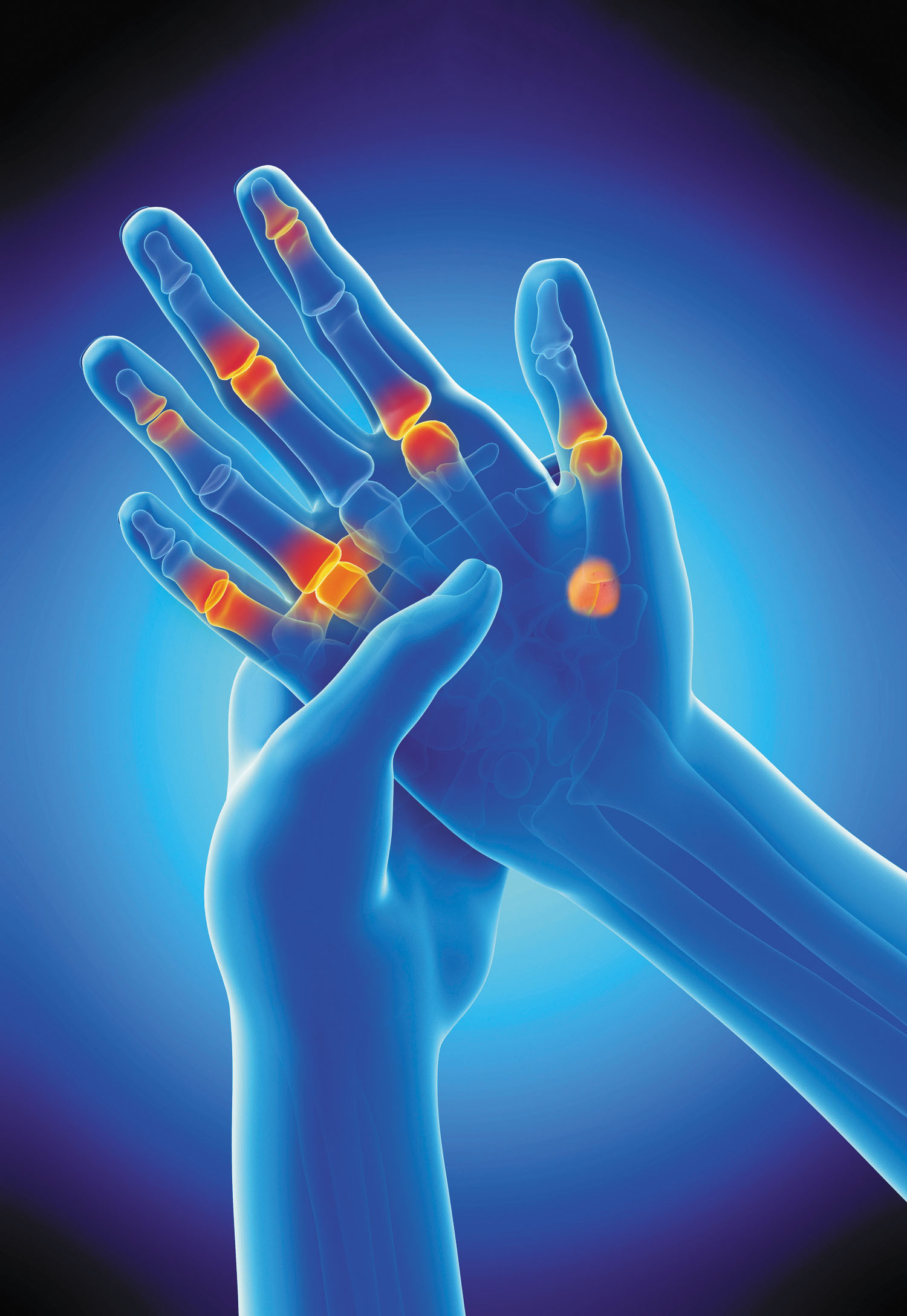
Can white noise really help you sleep better?

Celiac disease: Exploring four myths

What is prostatitis and how is it treated?

What is Cushing syndrome?

Exercises to relieve joint pain

Think your child has ADHD? What your pediatrician can do

Foam roller: Could you benefit from this massage tool?

Stepping up activity if winter slowed you down

Common causes of cloudy urine

Dragon fruit: How to enjoy this antioxidant-rich fruit
Hands Archive
Articles
Why do I have white spots on my nails?
White spots on fingernails are common and have many possible causes. These include minor trauma to the fingers, wearing nail polish for prolonged periods, fungal infections, low iron levels, kidney disease, or liver cirrhosis.
Identifying arthritis in your fingers and thumbs
Two main types of arthritis can affect the thumb and fingers. Osteoarthritis typically affects joints in the middle or end of the fingers or the base of the thumb. Rheumatoid arthritis more often affects the fingers' middle joints or the joints that connect the fingers to the hand. Medications can halt or slow the progression of rheumatoid arthritis. There aren't any drugs proven to halt or slow osteoarthritis. Using a splint or brace, using assistive devices (such as a shirt buttoner), and working with a certified hand therapist can help people cope with either type of arthritis.
Should I stop cracking my knuckles?
People may relieve anxiety by cracking knuckles or other joints. Usually it's a harmless habit, but people with joint problems like arthritis should refrain, since doing so might worsen symptoms.
Poor handgrip strength in midlife linked to cognitive decline
A large study published online June 23, 2022, by JAMA Network Open found that poor handgrip strength in midlife was associated with cognitive decline a decade later.
Hand pain from arthritis? This may help
The joint connecting the thumb and wrist is crucial in everyday activities like opening jars or grasping objects, but if osteoarthritis develops, treatment options are limited and don't always work well. A new study has demonstrated the effectiveness of occupational therapy for arthritis in this joint of the hand.
You don't say? Cracking the code
Knuckle cracking doesn't "crack" a joint. The sound comes from gas bubbles bursting in the fluid inside the joint. While knuckle cracking is mostly harmless, other types of noises or the presence of pain can indicate a more serious joint problem.
Get a helping hand for pain
Osteoarthritis in the hand is a painful condition that is more common in women than in men. While this condition can be debilitating, a number of strategies can be used to manage it, including using various topical, oral, and injected pain medications; splinting the joint; making lifestyle changes; and working with a hand therapist. Surgery may be an option when other measures have failed to control symptoms.
Tendon trouble in the hands: de Quervain's tenosynovitis and trigger finger
Painful conditions like de Quervain's tenosynovitis, inflammation of the tendons that move the thumb, and stenosing tenosynovitis, or trigger finger, when a digit becomes locked, can develop due to overuse or repetitive movement.
Safety of LED nail lamps
Ask the doctors
Q. I was worried about drying my nails with a lamp or light box at the nail salon because of the potential risk of cancer from the ultraviolet radiation, but my salon recently switched to LED lamps. Are they safer?
A. The light boxes used to cure polish during gel manicures, and to dry traditional nail polish, have raised some concern because — like tanning beds — they emit ultraviolet A (UVA) radiation, which is associated with a higher cancer risk. A 2014 study in JAMA Dermatology found that the level of UVA exposure associated with a gel manicure every two weeks probably isn't high enough to increase the risk of skin cancer significantly, but you are wise to be aware of the issue.

Can white noise really help you sleep better?

Celiac disease: Exploring four myths

What is prostatitis and how is it treated?

What is Cushing syndrome?

Exercises to relieve joint pain

Think your child has ADHD? What your pediatrician can do

Foam roller: Could you benefit from this massage tool?

Stepping up activity if winter slowed you down

Common causes of cloudy urine

Dragon fruit: How to enjoy this antioxidant-rich fruit
Free Healthbeat Signup
Get the latest in health news delivered to your inbox!
Sign Up











